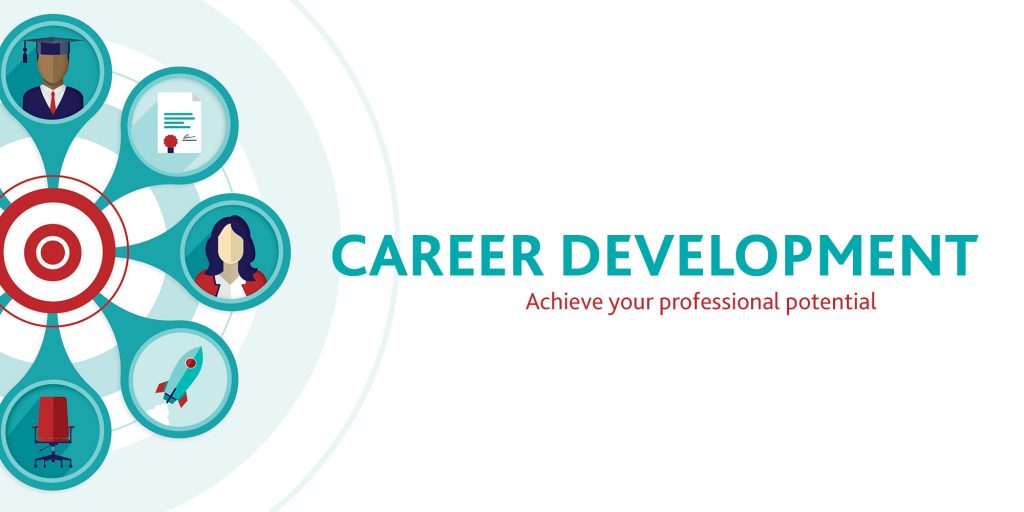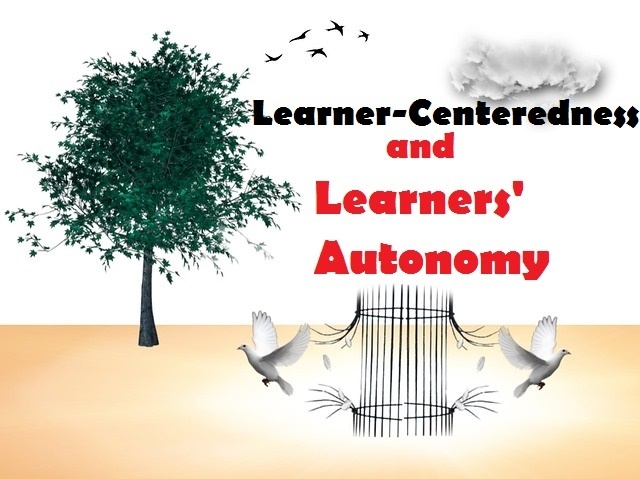Why Professional Development
The effectiveness of professional development (PD) is no longer questionable. Research has shown empirical evidence that (PD) that targets teachers and educators can yield remarkably positive effects on students’ achievement and learning.
Teacher professional development (TPD) is no more understood as those formal teacher-targeted initiatives where professional developers seek to train teachers to master a certain amount of knowledge or a set of skills needed in classrooms. TPD, by now, is perceived to be any pedagogical process in which teachers are involved to make more progress or to help enhance their classroom practices and pedagogical knowledge. It can take place either inside or outside the school.
There are many ways teachers can employ TPD, namely: professional learning communities, action research, reading books, sharing sessions, workshops, taking part in seminars and conferences….etc. Many researchers (S. T. Womack & B. J. Chandler, 1992) have continuously confirmed that reading is one of the effective ways to maintain personal and professional growth. In this regard, I prepared to you a list of some great books in TPD that can definitely help you.
Books of Teacher Professional development
Nowadays, we have access to an infinite number of resources we can use for our professional development. These resources include Youtube videos, educational websites, online tutorials, podcasts, and more. However, books remain the most comprehensive resource of in-depth learning for so many people.
In this article, we will present to you 6 of our favorite books that help you with your professional development and career-building.
The first book is Teacher Professional Development for Improving Quality of Teaching
by: C., Bert, K., Leonidas, & A., Panayiotis.
This is a great book for teachers and educators. It largely contributes to the current theory on TPD by drawing on the effect of integrating research on teacher effectiveness and classroom practices. It calls teachers to integrate different approaches to effective teaching and learning instead of focusing on only one. Most importantly, it provides a sound theoretical background and a group of recommendations for professional development initiatives and effective teacher training.
The second book is Instructional Coaching
by Jim Knight.
The book introduces instructional coaching as an innovative strategy that makes change happen, improves instruction, and build positive school culture.
Instructional coaching is seen as a profession-embedded approach to instructional effectiveness that help teachers and educators achieve the best outcomes of education. Jim Knight talks about practical details of instructional coaching and introduces the essential competencies that coaches must possess to render coaching possible. Some of these skills are: modeling lessons, engaging in reflective discussions, involving teachers….etc.
The third book is Mindsets in the Classroom: Building a Growth Mindset Learning Community
by: Mary Cay Rikki
Throughout this book, Mrs. Rikki tries to share a set of easy-to-follow pieces of advice and techniques teachers can use to build a community of learners with a success mindset.
The writer provides arguments that learners who believe in diligence and dedication can achieve higher in schools, they become resilient and successful individuals. Inspired by ideas from psychology, this book provides both teachers and educators with several innovative ideas to build a growth mindset school culture where learners are taking initiatives to learn and think of ways to make more progress with their education.
The book is so insightful and very useful for teachers. It incorporates a professional development plan to help them communicate the positive mindset to students and also to parents.
The fourth book is Fostering Resilient Learners
by Pete Hall & Kristen Sources.
If you work with low achievers, learners with low self-efficacy, learners with post-traumatic effect disorder, or learners from socially-disadvantaged milieus, this is a resource you can draw on. It is based on research and the writers’ experiences in contexts where many learners are suffering from trauma-affects. The book will help you understand these sensitive issues and suggest strategies and alternative actions to take.
A wonderful piece of work, not to mention that it is the winner of the 2017 Association of American Publishers Golden Lamp Judges award. It is highly recommended.
The fifth book is Teacher-Centered Professional Development
By Gabriel Diaz-Maggioli.
The book is considered one of the greatest references to TPD. It presents a model that helps teachers have a hands-on guide to personal and professional growth. It provides a descriptive account of practical professional development strategies, such as mentoring, journal writing, peer-to-peer coaching, open classrooms, study groups, lesson study, peer observation…etc. for each strategy, The writer shows a step-by-step way and to put it into practice.
The sixth book is Teacher Development: A Model From Science Education
by Beverley Bell & John Gilbert.
The book introduces a model of teacher personal, social, and professional development based on science education and it is based on the outcomes of longitudinal research conducted in New Zealand. The book help teachers, educators, teacher developpers, school managers, and policymakers understand some of the basic issues underpinning teacher development and education. It is an introductory book as it includes conceptual knowledge on TPD.
If you are a teacher or educator and highly interested in TPD, these are some of the books that can help you. I hope that you like them. You can fetch them online. Enjoy reading. What books can you add to this set to help other teachers learn more about TPD?
Please, Like our Facebook page and share this post to help someone who needs to know about this.













